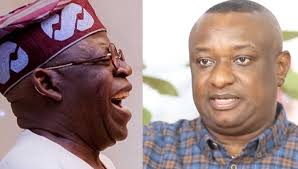- NCAA threatens sanctions against Qatar Airways, Air Maroc, Saudi Air
- FAAN MD, Kuku elected ACI vice-president, Africa, permanent member World Governing Board
- FACT CHECK! First dry-lease aircraft in two decades not correct
- IATA asks ICAO to approve pilots' age limit to 67 from 65, speed up accident investigation, others
- Nigeria to get first dry-lease aircraft October 6, 15 years after blacklist
Nigeria to get first dry-lease aircraft October 6, 15 years after blacklist

The Minister of Aviation and Aerospace Development, Festus Keyamo, has said that the first aircraft under a dry lease agreement will arrive in Nigeria on October 6, 2025, more than 20 years after Nigeria was blacklisted from dry aircraft agreements.
He stated that the reforms of the Federal Government on aviation, as they affect Nigerian airlines’ ability to get a cheaper source of aircraft financing through the dry-lease arrangement, are paying off.

The Minister, who stated this on Wednesday at the groundbreaking ceremony of the construction of a maintenance facility for Air Peace, otherwise known as Maintenance Repair Overhaul (MRO) at the Murtala Muhammed Airport, Lagos, disclosed that he gave a personal guarantee letter for the Nigerian flag carrier to get aircraft on dry-lease.
A dry lease is an aircraft leasing agreement where the owner (lessor) provides the aircraft to the lessee without crew, maintenance, or insurance.
The lessee takes on full responsibility for the aircraft’s operation, including placing it on their Air Operator’s Certificate (AOC), providing their own flight and cabin crew, funding maintenance, and arranging insurance.
This arrangement gives the lessee greater operational control over the aircraft and is often a more cost-effective solution for operators with the necessary infrastructure and long-term needs.
He said, “We are stepping in for private businesses to grow. We are doing this not for Air Peace but other airlines”.
Last year, Nigeria finally exited the depressing list among nations with bad records of defaulting on aircraft agreement lease rentals.
This came as the country complied fully with the Cape Town Convention on dry-leasing of aircraft by preparing and signing the Practice Direction; the country’s global rating status has once again soared higher.
Last year, the rating jumped from 70.5 to 75.5 points. As a result, the Aviation Working Group (AWG), which is co-chaired by Boeing and Airbus companies, has removed the country from its watchlist.
Precisely, in October last year, Nigeria moved from 49 points to 70.5 after the signing of the Cape Town Convention Practice Direction.
A significant problem was the failure of some Nigerian airlines to meet their obligations under dry lease agreements, including returning leased aircraft and making payments. This led lessors to view Nigeria and its carriers as high-risk, resulting in a virtual blacklist.
However, this situation began to change in 2025 as the Nigerian government and aviation authorities worked to address these challenges and signal to lessors that the environment was becoming more secure for dry-lease arrangements.
The President of Topbrass Aviation Limited, Captain Roland Iyayi, who spoke recently, spoke in support of dry-lease financing and the exponential benefits to Nigerian carriers, said that dry leasing would free initial capital outlay because the cost is far reduced than in wet lease.

“You will be able to operate with your own crew. It improves operational standards because you use your own crew, and it enhances efficiency and safety standards because you are optimising your crew that you will keep aside in wet lease, while at the same time paying them,” he said.
Google+

